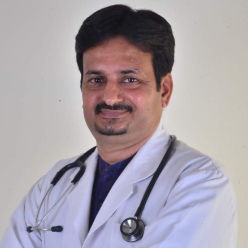Type 1 Diabetes Overview and Impacts
Know about the type 1 diabetes, overview, impacts, common symptoms, causes and risks. Learn how it affects your health and how to manage type 1 Diabetes.


Introduction
Living with Type 1 Diabetes (T1D) can feel overwhelming, but with the right knowledge and support, you can lead a healthy and fulfilling life. This guide will help you understand what Type 1 Diabetes is, its symptoms, causes, and how it affects your body. We’ll also share practical tips for managing it effectively.
What is Type 1 Diabetes?
Type 1 Diabetes is a chronic (lifelong) condition where your pancreas produces little or no insulin, a hormone that helps your body use sugar (glucose) for energy. Without insulin, sugar builds up in your blood instead of being used by your cells, leading to high blood sugar levels.
Unlike Type 2 Diabetes, which is often linked to lifestyle factors, Type 1 Diabetes is an autoimmune disease—meaning your immune system mistakenly attacks the insulin-producing cells in your pancreas.
Consult the Best Endocrinologist for Personalised Advice
Common Symptoms of Type 1 Diabetes
Recognising the early signs of Type 1 Diabetes is crucial for timely treatment. Symptoms often develop quickly and may include:
• Extreme thirst (drinking more water than usual)
• Frequent urination (especially at night)
• Unexplained weight loss (even if eating normally)
• Fatigue and weakness
• Blurred vision
• Increased hunger
• Slow-healing wounds or frequent infections
• Mood changes (irritability or confusion)
If you or a loved one experiences these symptoms, consult a doctor immediately. Early diagnosis helps prevent complications.
Causes and Risk Factors
The exact cause of Type 1 Diabetes is still unknown, but researchers believe a combination of genetic and environmental factors plays a role:
• Genetics: Having a family history of T1D increases risk.
• Autoimmune reaction: The immune system destroys insulin-producing cells.
• Viral infections: Some viruses may trigger the autoimmune response.
• Environmental factors: Diet, toxins, or early childhood exposures may contribute.
Unlike Type 2 Diabetes, Type 1 is not caused by poor diet or lack of exercise.
How does Type 1 Diabetes affect your Health?
If left unmanaged, high blood sugar levels can damage various organs over time, leading to complications such as:
• Heart disease and stroke
• Kidney damage (nephropathy)
• Nerve damage (neuropathy), causing pain or numbness
• Eye problems (retinopathy), leading to vision loss
• Foot problems (poor circulation, infections, ulcers)
• Skin and gum infections
The good news? Proper management can prevent or delay these complications.
Managing Type 1 Diabetes: Tips for a Healthy Life
While there’s no cure for Type 1 Diabetes, it can be managed effectively with:
1. Insulin Therapy
Since your body doesn’t produce insulin, you’ll need daily insulin injections or an insulin pump. Your doctor will help determine the right dosage and type (rapid-acting, long-acting, etc.).
2. Blood Sugar Monitoring
• Fingerstick tests (using a glucose meter)
• Continuous Glucose Monitors (CGMs) (wearable devices that track sugar levels in real-time)
Keeping blood sugar in the target range (usually 80-130 mg/dL before meals and under 180 mg/dL after meals) reduces complications.
3. Healthy Eating Habits
• Balanced meals: Include proteins, healthy fats, and complex carbs (whole grains, vegetables).
• Limit sugary foods/drinks: Opt for natural sweeteners in moderation.
• Carb counting: Helps match insulin doses to food intake.
4. Regular Exercise
• Physical activity helps control blood sugar, but monitor levels before and after workouts to avoid hypoglycemia (low blood sugar).
5. Stress Management
• Stress affects blood sugar levels. Try relaxation techniques like deep breathing, yoga, or meditation.
6. Regular Doctor Visits
• Annual eye exams
• Kidney function tests
• Foot check-ups
• HbA1c tests (measure average blood sugar over 3 months)
When to Seek Emergency Help?
Call a doctor immediately if you experience:
• Severe hypoglycemia (confusion, seizures, unconsciousness)
• Diabetic ketoacidosis (DKA) (nausea, vomiting, fruity-smelling breath, rapid breathing)
Final Thoughts
With proper care, technology (like insulin pumps and CGMs), and support, people with Type 1 Diabetes can lead active, healthy lives. Stay informed, follow your treatment plan, and don’t hesitate to reach out to healthcare professionals for guidance.
Consult the Best Endocrinologist for Personalised Advice
Consult the Best Endocrinologist for Personalised Advice

Dr. Anand Ravi
General Physician
2 Years • MBBS
Bengaluru
PRESTIGE SHANTHINIKETAN - SOCIETY CLINIC, Bengaluru

Dr. Nithin Reddy Modhugu
Endocrinologist
6 Years • MBBS, MD (General Medicine), DNB (Endocrinology)
Hyderabad
Dr. Nithin's Endocrine Clinic, Hyderabad
(100+ Patients)

Dr. Gayatri S
Endocrinologist
4 Years • Suggested Qualifictaion- MBBS, MD (Internal Medicine), DM (ENDOCRINOLOGY)
Nellore
Narayana hospital, Nellore

Dr. Shrikrishna V Acharya
Endocrinologist
25 Years • MBBS, MD, DM(Endocrinology), MRCP (Endocrinology)
Bengaluru
Apollo Clinic, JP nagar, Bengaluru

Dr. E Prabhakar Sastry
General Physician/ Internal Medicine Specialist
40 Years • MD(Internal Medicine)
Manikonda Jagir
Apollo Clinic, Manikonda, Manikonda Jagir
(125+ Patients)
Consult the Best Endocrinologist for Personalised Advice

Dr. Anand Ravi
General Physician
2 Years • MBBS
Bengaluru
PRESTIGE SHANTHINIKETAN - SOCIETY CLINIC, Bengaluru

Dr. Nithin Reddy Modhugu
Endocrinologist
6 Years • MBBS, MD (General Medicine), DNB (Endocrinology)
Hyderabad
Dr. Nithin's Endocrine Clinic, Hyderabad
(100+ Patients)

Dr. Gayatri S
Endocrinologist
4 Years • Suggested Qualifictaion- MBBS, MD (Internal Medicine), DM (ENDOCRINOLOGY)
Nellore
Narayana hospital, Nellore

Dr. Shrikrishna V Acharya
Endocrinologist
25 Years • MBBS, MD, DM(Endocrinology), MRCP (Endocrinology)
Bengaluru
Apollo Clinic, JP nagar, Bengaluru

Dr. E Prabhakar Sastry
General Physician/ Internal Medicine Specialist
40 Years • MD(Internal Medicine)
Manikonda Jagir
Apollo Clinic, Manikonda, Manikonda Jagir
(125+ Patients)




